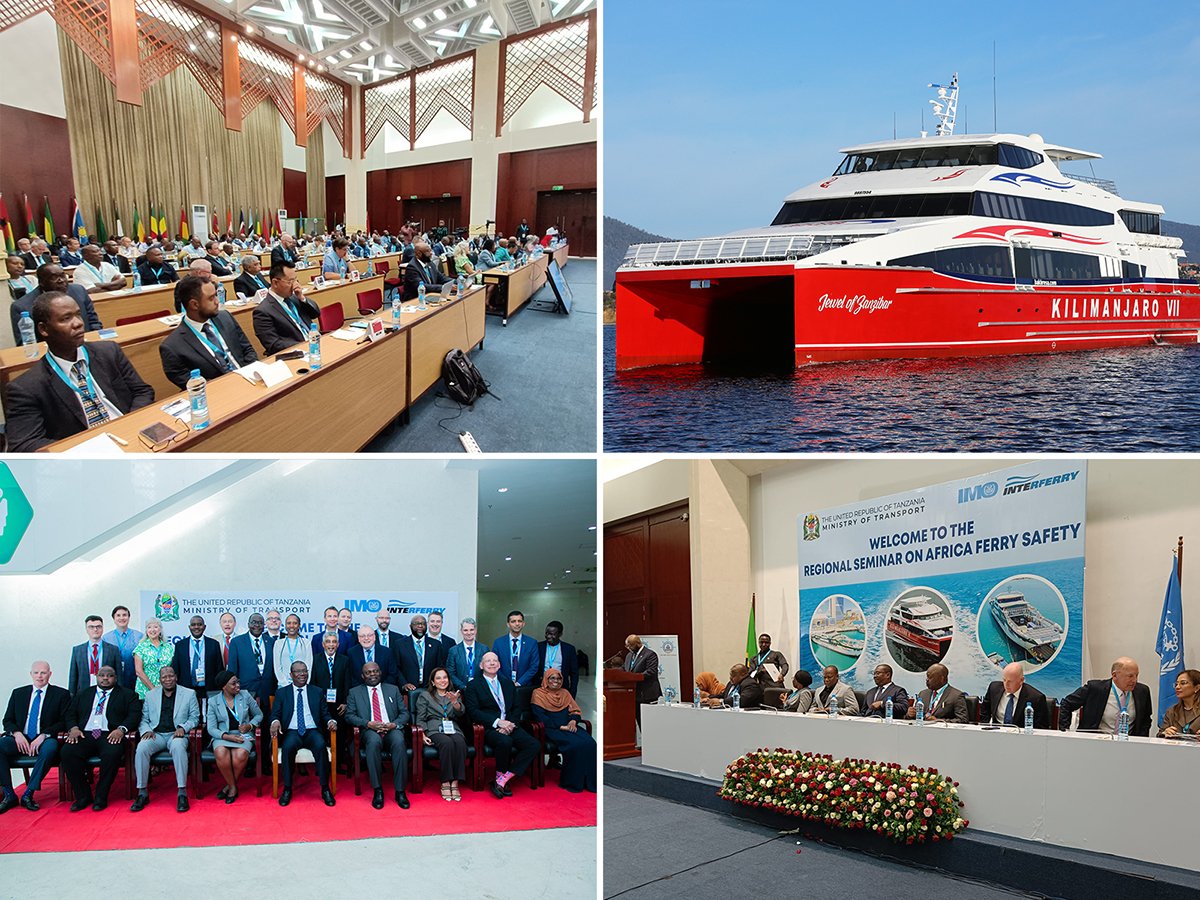Industry experts call for stronger national legislation on domestic ferry safety in Africa
African countries have been urged to develop and update national legislation to include adequate measures to ensure domestic ferry safety.
A regional seminar held 16 to 17 April by IMO and Interferry in Dar es Salaam, United Republic of Tanzania, aimed to address the frequent high number of casualties in the region. The event was hosted by the Tanzania Shipping Agencies Corporation (TASAC) with the support of the Ministry of Works, Transport and Communications of Tanzania.
Up to 120 decision makers and industry experts from Cameroon, Cabo Verde, the Democratic Republic of the Congo, Ethiopia, Gabon, Ghana, Kenya, Madagascar, Morocco, Nigeria, Senegal, South Africa, Togo, Uganda, as well as the host country, the United Republic of Tanzania, took part in discussions.
Participants represented maritime administrations, ferry shipping company operators and finance and insurance providers. They explored a range of safety aspects, focusing on common problems such as ticketing and overcrowding, loading and stowage, design and construction failure, as well as a lack of insurance and political will.
Challenges identified by the panellists and participants during sessions included the lack of resources, such as funding of new builds, training of crew and maintenance of the ferries. To address some of these issues, IMO has been offering training and capacity building activities through its Integrated Technical Cooperation Programme (ITCP), and projects and partnerships.
The meeting outlined several recommendations urging participating countries, in collaboration with relevant national stakeholders and interested parties, to develop, review and update their national legislative and administrative requirements and practices relating to the operation of domestic vessels and passenger ferries. The aim is to ensure adequate safety measures are included in national legislation and practices.
Hon. Khalid Salum Mohamed, Minister of Infrastructure, Communication and Transport for Zanzibar welcomed the joint initiative of IMO and Interferry to address these critical issues.
As part of the event, participants visited a port terminal in Dar es Salaam to gain practical insight into the daily ferry operations of some ferry services in the country.
IMO’s work on domestic ferry safety
The regional seminar is part of IMO’s technical assistance to establish effective global safety standards for domestic passenger ferries. Domestic ferries serve as the primary means of transportation in many parts of Africa, including some landlocked countries where they are used to cross inland waterways and lakes.
However, there are safety concerns. Accidents involving ferries often have severe consequences. Since the 1960s, an estimated 1,000 people per year have died in the global passenger ferry industry, with more than 90% of fatalities occurring on domestic routes.
In recent years, the IMO Secretariat has carried out extensive work to enhance domestic ferry safety, leading to the adoption of the Model Regulations on Domestic Ferry Safety (Resolution MSC.518(105)) by the Maritime Safety Committee at its 105th session in April 2022.
The outcomes of the seminar will contribute to guiding IMO plans for further technical assistance on domestic ferry safety in the region.
Source : IMO






